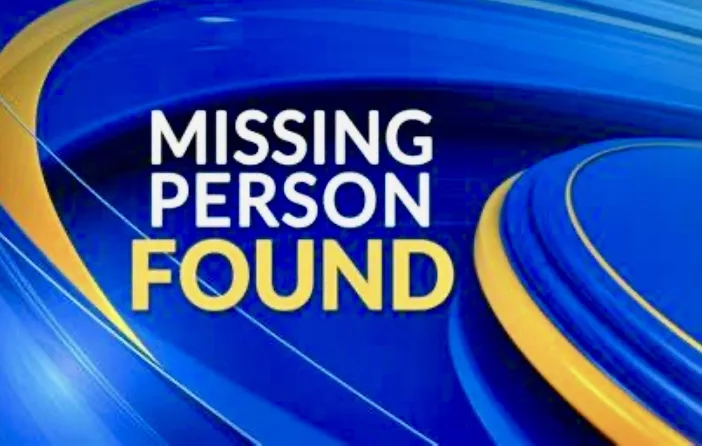The veto period is upon us, and numerous bills are now on the governor’s desk awaiting his action.
The governor has 10 days to consider whether he will sign them, allow them to become law without his signature, or veto them. Your General Assembly has worked hard in this short session to deliver meaningful legislation to the governor protected by the veto override period.
Any vetoed legislation will qualify for a legislative override when we return to Frankfort on March 29. Any additional bills fully passed during the final two days of the session will not qualify for a legislative override.
Before diving into all the legislation that saw passage this week, I would like to highlight legislation I introduced and is now waiting to be signed by the governor.
Senate Bill 42 requires the Finance and Administration Cabinet, by December 31, to contract with a single independent entity to monitor all healthcare benefit claims for every individual enrolled in the Public Employee Health Insurance Program. The bill allows the contract to include pharmacy benefits claims monitoring if used instead of the contract to monitor pharmacy benefit claims. Additionally, Medicare-eligible retirees’ healthcare benefits will be excluded from monitoring. The first quarterly report monitoring health care service benefit claims must be submitted to the Legislative Research Commission by April 30, 2024.
Senate Bill 43 is a measure to ensure we are considering the holistic good of loved ones in residential facilities. During COVID-19, families were closed off from those they loved, and sadly some residents in nursing homes passed away without the comfort of a loved one beside them. The General Assembly corrected this during last year’s legislative session. Still, this bill expands exemptions for essential personal care visitors from prohibitions relating to visiting a resident in a community, health facility, mental hospital, or those receiving home or community-based Medicaid waiver services. The bill also exempts essential personal care visitors from visitation prohibitions during infectious disease outbreaks in communities mentioned above, regardless of their communicable disease status. Senate Bill 43 carries an emergency designation, which means it would go into effect immediately upon filing with the Kentucky Secretary of State’s Office.
Senate Bill 48 adopts the recommendations from the 2022 CHFS Organizational Structure, Operations and Administration Task Force.
The first recommendation was to continue the task force through the 2023 Interim.
The second was to abolish the Department for Income Support, which administers the Child Support Enforcement Program and Disability Determination Services Program within the Cabinet and places the Child Support Enforcement Program within the Office of the Attorney General and the Disability Determination Services Programs within the Education and Labor Cabinet.
The third was to place the Office for Children with Special Health Care Needs under the jurisdiction of the Department for Public Health.
The fourth was to remove the Serve Kentucky program from the cabinet, place it under the Education and Labor Cabinet and put the Family Resource and Youth Services Centers (FRYSCs) under either the Education or Labor Cabinet or within the Department for Community-Based Services.
The fifth task force recommendation was to separate the Office of the Ombudsman and Administrative Review and the Office of the Inspector General from the Office of the Secretary.
The sixth recommendation requires the cabinet to identify and eliminate redundancies and barriers to administering 1915(c) Medicaid Waiver Programs. In addition, the final task force recommendation requires the Cabinet’s Office of Human Resource Management to work with the Personnel Cabinet to identify and reduce the barriers prohibiting the effective and timely hiring and onboarding of prospective employees within the cabinet.
Senate Joint Resolution 54 (SJR 54) directs the Department for Medicaid Services to develop a proposal to link Medicaid reimbursements to Area Deprivation Index Scores.
Provides 14 WHEREAS clauses outlining Kentucky’s health status and challenges facing socioeconomically disadvantaged or deprived communities.
SJR 54 will require the Department for Medicaid Services to:
1) Study efforts in other states to account for social risks and health-related social needs in Medicaid payment models;
2) Review federal regulations related to Medicaid reimbursements and the ability for states to design reimbursement models that effectively address social risks and health-related social needs;
3) Assess the appropriateness of the Area Deprivation Index as a valid measure of social risks and health-related social needs in Kentucky; and
4) Develop a proposal to modify Kentucky’s current Medicaid reimbursement model based on the Area Deprivation Index score of the location where a healthcare provider practices.
Additionally, the Department for Medicaid Services will be required to submit its findings and proposals to the Legislative Research Commission no later than November 1, 2023.
Significant Senate bills receiving final passage and delivered to the governor include:
Senate Bill 4 is a measure to stand by Kentuckians facing high energy costs due to the federal regulations that have decimated Kentucky’s coal industry. It prohibits the Kentucky Public Service Commission from authorizing the retirement of fossil fuel-fired power plants unless the utility can demonstrate it will replace the retired plant with a new electricity generating capacity that maintains or improves the grid’s reliability.
Senate Bill 5 ensures parental engagement in decision-making regarding a student’s access to sexually explicit materials that may be inappropriate or harmful to minors by providing parents with a complaint resolution process.
Senate Bill 141 included an agreement between counties and cities on the annexation issue.
Senate Bill 150 does several things, but notably it provides parents with the information they deserve to know regarding their child’s mental health and services offered in school. It also protects minors from the irreparable harm of sterilizing and ‘gender-affirming’ surgery.
Several House bills made final passage this week are with the governor for consideration, including:
House Bill 75 allows hospitals to be reimbursed for outpatient services, pulling down federal resources and saving state funds. Under the bill, hospitals would be able to cover inpatient and outpatient services to better stabilize their finances.
House Bill 153 would prevent the federal government from enforcing its own firearms restrictions or prohibit the General Assembly from enacting new gun laws in the future. It applies to federal laws or regulations enacted on firearms, ammunition and accessories since January 1, 2021.
House Bill 180 would require health benefit plans to cover biomarker testing for patients diagnosed with cancer and other diseases.
House Bill 236 (carried by Mills) would require state public pension funds to base investment decisions on financial risks and returns and not on environmental, social and governance factors, commonly known as ESG.
House Bill 268 would establish an advisory committee to review Kentucky’s perinatal care system and make recommendations for improving perinatal outcomes within the Cabinet for Health and Family Services.
House Bill 547 protects the religious liberty of students and staff in school settings.
More notable efforts were made on the Department of Juvenile Justice front, as the House gave final passage to Senate Bills 158 and 162, which provide for a full independent audit of the Department of Juvenile Justice and comprehensively reform DJJ, respectively.
A few additional Senate bills were passed from the chamber and sent to the House, reserving enough time to pass before the session’s end. These are bills believed to have strong bipartisan support where a legislative override of a gubernatorial veto will not be necessary.
Senate Bill 96 strengthens Kentucky’s competitiveness with neighboring states, specifically benefitting rural communities seeking additional means of economic opportunity and tourism attractions, and opens Kentucky to multi-million-dollar investments. It would set a framework for local governments to grant permits for racing events as long as conditions are met on insurance, security, and emergency services. Additionally, the bill would allow local governments to temporarily close roadways, reroute traffic, and waive traffic regulations for the events.
Senate Bill 108 covers several areas related to motor vehicles. It stipulates that for a speeding violation of five miles per hour or less over the limit, a person will receive a courtesy warning instead of a ticket. It also requires an owner or attendant of a privately-owned parking lot to wait 24 hours before having a vehicle towed if a person experiences an incident or emergency requiring them to leave the vehicle unattended. Additionally, it clarifies the procedure for claiming personal belongings from a vehicle that has been towed and stored. It requires a jailer to return a valid operator’s license upon a person’s release unless needed for evidentiary purposes. It also allows for proof of a valid driver’s license and vehicle registration electronically.
Senate Bill 228 sets an impaired driving limit for marijuana, specifying people are too impaired to drive if they have five nanograms or more of tetrahydrocannabinol, also known as THC, per milliliter in their blood. THC is a crystalline compound and is the main active ingredient of cannabis. The bill includes a presumption that a person is not under the influence of marijuana for a marijuana concentration below four.
Any bills that did not make it to the governor’s desk this week can still be made law before the session’s end. However, any that are vetoed will not become law, as we will not have time for a veto override.
Medical cannabis legislation was approved in the Senate for the first time. The bill is narrowly tailored to provide residents with pain and other serious medical conditions access to non-smokable forms.
If enacted, the bill would take effect on January 1, 2025. Before accessing cannabis, patients must register and receive approval for a special identification card. Patients under 18 would not be allowed to possess, purchase, or acquire medicinal cannabis without the assistance of a designated caregiver. Senate Bill 47 would also create separate licenses for cultivators, dispensers and producers. It would also give the Kentucky Cabinet for Health and Family Services great oversight and latitude in developing regulations.
Several medical conditions could qualify someone to use the product, including cancer, chronic and other types of pain, epilepsy, multiple sclerosis, muscle spasms, chronic nausea, and post-traumatic stress disorder.
The bill is now with the House for consideration. A similar measure to Senate Bill 47 was passed in the House last year but did not have enough support at that time to pass in the Senate. If the House approves the measure in the last two legislative days, it will be delivered to the governor’s desk for consideration.
House Bill 594, which bans ‘gray’ machines, was signed into law. Gray machines are gaming machines with cash payouts operating in a gray area of state law. The original bill included an emergency clause, which would have made the legislation take effect as soon as it became law. However, House Bill 594 was amended to remove the clause and allow ample time for all to comply.
The following are Senate Bills given final passage and delivered to the Governor: 3, 4, 5, 7, 9, 12, 20, 25, 28, 30, 37, 43, 48, 49, 54, 58, 62, 65, 71, 72, 80, 89, 107, 112, 126, 129, 135, 141, 144, 156, 163, 165, 190, 192, 209, 213, 226, 229.
The following are House Bills given final passage and delivered to the Governor: 3, 4, 13, 76, 130, 148, 154, 157, 160, 167, 164, 165, 170, 172, 176, 188, 200, 210, 228, 232, 237, 241, 264, 287, 288, 302, 313, 380, 387, 391, 393, 429, 433, 436, 442, 444, 502, 506, 534, 538, 547, 542, 587, 146.
Watch live legislative activity at KET.org/legislature. You can also track the status of other legislation by calling 866-840-2835, legislative meeting information at 800-633-9650, or leaving a message for lawmakers at 800-372-7181.
Sen. Steve Meredith, R-Leitchfield









